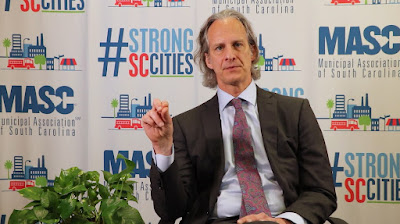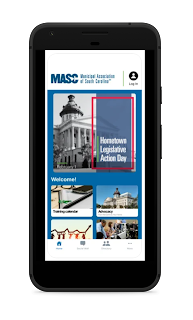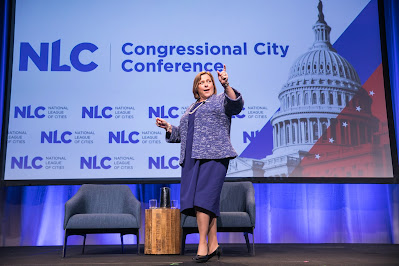The Municipal Association of SC has expanded its focus on advocating for the interests of South Carolina’s cities and towns at the federal level, and already the effort has improved engagement with the state’s congressional delegation.
A key part of this effort has been the establishment of a dedicated congressional liaison — a role assigned to Erica Wright, who joined the Association’s staff as a legislative and public policy advocate in April 2020. She has since nurtured relationships with the staffs of both of South Carolina’s senators and each of its seven representatives.
A recent podcast brought together Erica Wright with Director of Advocacy and Communications Scott Slatton and Manager for Municipal Advocacy Casey Fields to talk about how these congressional relationships have unfolded and how they benefit cities and towns in South Carolina.
Here are some highlights from the recent efforts:
Outreach with municipalities
The passage of the Coronavirus Aid, Relief, and Economic Security Act, or CARES Act, in March 2020 highlighted the need for strong federal relationships when many cities and towns brought questions about reimbursable expenses to the Association.
In March 2021, Congress passed the American Rescue Plan, a massive emergency relief bill that provides $65.1 billion to municipal governments nationwide to respond to the COVID-19 pandemic. The Municipal Association worked to help cities and towns understand the parameters that the law creates for using the funds, and it helped the SC Department of Administration obtain needed information from the nonentitlement cities so they could draw their funds from the state.
Outreach with the congressional delegation
In September, Aiken Mayor Rick Osbon, first vice president of the Municipal Association, the Association’s Executive Director Todd Glover and members of the Association’s advocacy staff traveled to Washington, D.C., for meetings with members of the congressional delegation. Association staff shared the Municipal Association’s purpose and its desire to serve as a resource and partner with federal legislators as they explore legislation impacting local government. They met with House Majority Whip Jim Clyburn, Sen. Tim Scott, Rep. Joe Wilson as well as staffers from the delegation’s offices.
Municipal Association officials meet with Rep. Jim Clyburn, at center.
In 2022, the Association is planning quarterly meetings with the congressional delegation, and it will host opportunities in each home congressional district for city and town officials to engage more directly with their representatives.
Hometown Legislative Action Day














